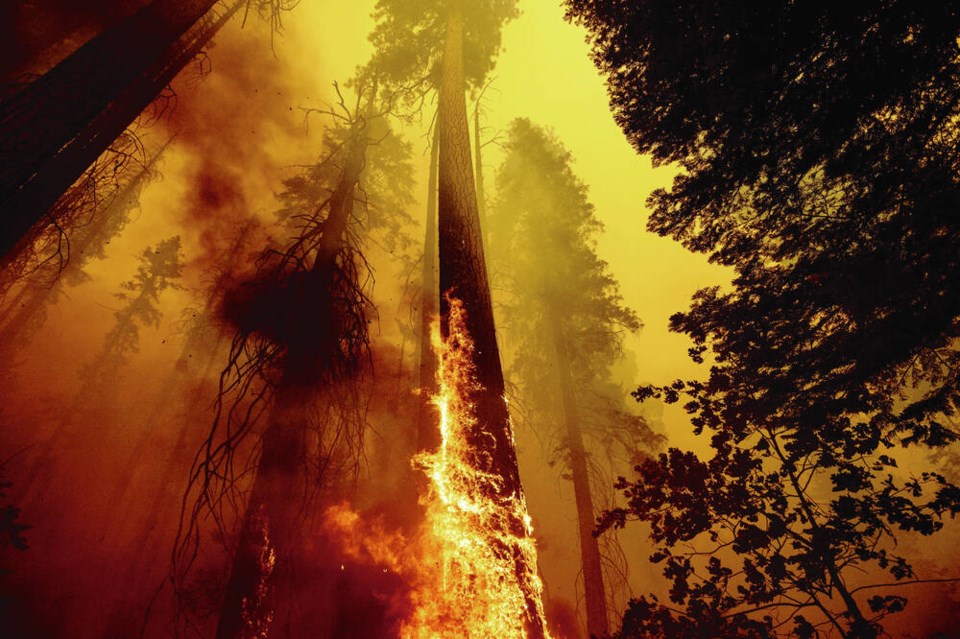A recent letter to the editor (July 30) began: tWell, actually, that is not what I said or what my columns are about. If by “the end of the world” he means the planet, it is not ending any time soon. It has been around four billion years and will doubtless continue for billions more. Nor is life on Earth, too, likely to end; it has survived five previous “great extinction” events, and will probably survive the sixth great extinction that we have initiated, although a great many species will not survive.
Even the human species is probably not at risk, although we should remember that, over time, pretty much all species become extinct. But we are a highly adaptable and tough species, able to survive and indeed usually thrive in habitats as diverse as the Arctic, equatorial jungles, deserts and high altitudes. We will likely survive (in some form) anything less than the sort of major extinctions caused by an asteroid strike or massive volcanic eruptions.
What are at risk are societies and communities, and our present form of “civilisation,” which will decline or collapse if the natural systems upon which we depend decline or collapse. If societies and communities do collapse, the health consequences will be severe, with high mortality rates, especially among the most vulnerable and marginalised.
My thoughts are occasioned not simply by the comments of one letter writer, however, but by a number of recent reports that give added credence to the notion that we are in deeper trouble than we have yet recognised.
The first is an Aug. 1 article in the Proceedings of the National Academy of Sciences titled “Climate endgame: Exploring catastrophic climate change scenarios.” Authored by a distinguished group of earth, climate and system scientists, the article notes that, far from exaggerating the rate, severity and impacts of climate change, the Intergovernmental Panel on Climate Change has a natural tendency to underestimate these factors.
The authors note four reasons for such a tendency, the result of which is that when a range of plausible models and scenarios are considered, we tend to stick with the “Goldilocks” scenario — not too optimistic, but not too pessimistic. Yet, the authors note: “There is ample evidence that climate change could become catastrophic. We could enter such ‘endgames’ at even modest levels of warming.”
Second, a recent report from the website Carbon Brief compiled attribution studies looking at more than 500 extreme weather events around the world. They noted “71 per cent of the 504 extreme weather events and trends … were found to be made more likely or more severe by human-caused climate change,” including 93 per cent of extreme heat events. Overall, they found a number of severe heat extremes that “would have been impossible or virtually impossible without human influence on the climate.”
One of those was the heat dome we experienced here last year. In fact, the rapid assessment study on that event, by World Weather Attribution — a collaboration of climate scientists in several leading institutions — found “the observed temperatures were so extreme that they lie far outside the range of historically observed temperatures.”
An article on the Carbon Brief study in The Guardian (Aug. 4) quotes Prof. Bill McGuire of University College London as saying: “What is astonishing is the speed with which global heating is translating into a hike in the frequency and intensity of extreme weather when the average temperature of the planet is up by just a little more than 1 C.” Moreover, note the authors of the PNAS article, we are on track for “a temperature rise between 2.1 C and 3.9 C by 2100”.
But it’s not just climate change; the United Nations refers to a “triple crisis” of climate change, biodiversity loss and pollution, and that is just on the environmental front. Add to that COVID-19 and other emerging or potential pandemics, high levels of inequality, war in Ukraine and elsewhere, and political instability in many places — and the potential for all of these to interact — and we face what is being called a polycrisis, which I will discuss next week.
Dr. Trevor Hancock is a retired professor and senior scholar at the University of Victoria’s School of Public Health and Social Policy.



